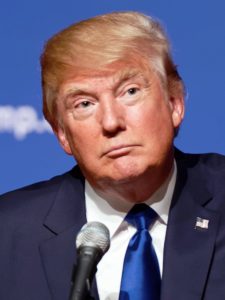Trinidad Teams with Trump to Tackle Terrorism
 President Donald Trump spoke with Prime Minister of Trinidad and Tobago Keith Rowley on February 19 to discuss topics of security, trade and stemming the flow of Trinidadian nationals heading to Syria to fight for the Islamic State (ISIS). The White House issued a statement following the call saying that both nations have recommitted to existing bilateral agreements and have pledged to work closely together on issues of terrorism.
President Donald Trump spoke with Prime Minister of Trinidad and Tobago Keith Rowley on February 19 to discuss topics of security, trade and stemming the flow of Trinidadian nationals heading to Syria to fight for the Islamic State (ISIS). The White House issued a statement following the call saying that both nations have recommitted to existing bilateral agreements and have pledged to work closely together on issues of terrorism.
Fox News reports that Trinidad and Tobago has the “largest per-capita source of ISIS recruits in the Western Hemisphere.” Although only six percent of the total population identifies as Muslim, up to 134 Trinidadians have left to join the terrorist group, a large proportion for a country with a population of only 1.3 million people. Recruits typically travel from Trinidad and Tobago to Turkey and then on to various ISIS-controlled territories.
According to the New York Times, low petroleum prices combined with little economic opportunity on the island have made young Trinidadian men particularly susceptible to radicalization. The handfuls of radical imams that operate on the island reportedly seek out imprisoned populations who already feel marginalized by Trinidadian society.
Currently, Trinidad and Tobago does not have any law prohibiting citizens from joining ISIS. Last week, the government introduced a series of bills to curb radicalization, including a measure effectively banning the travel of Trinidadian nationals to certain countries and regions. The law has been criticized for predominantly affecting and/or targeting the nation’s Muslim population traveling to the Middle East for religious pilgrimage, scholarship, or charity work.
American officials in the Trump administration fear the close proximity of a country with such a high radicalization rate to U.S. borders. Due to visa-free travel throughout the Caribbean, officials are particularly wary of Trinidadian extremists seeking to execute so-called lone wolf attacks in the United States, covertly making their way into the country via other Caribbean islands.
